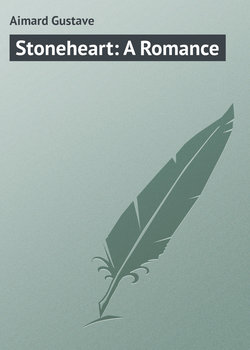Читать книгу Stoneheart: A Romance - Aimard Gustave, Gustave Aimard, Jules Berlioz d'Auriac - Страница 5
CHAPTER V.
THE AMBUSH
ОглавлениеDon Fernando and his friend, as we have related, left the hacienda a little before Don Torribio. They had made all haste to reach their dwelling. The tertulia had ended at nine o'clock; and by eleven they were at the rancho.
Doña Manuela was expecting them. In a few words they reported to her all that had happened at the tertulia, and hastened to their couches; for they were obliged to leave again at daybreak, if they wished to arrive in good time at San Lucar without over-fatigueing Doña Manuela, who was to accompany them. In fact, according to agreement, they mounted their horses a little before four in the morning.
In Mexico, on account of the intense heat of the day, people generally travel by night; that is to say, from four in the morning till eleven, and from six in the evening till midnight. Nine o'clock struck as the three entered the presidio. Don Fernando left his friend and the mother to find their way to the house he possessed in San Lucar, which he had placed at their disposal, while he himself repaired to the governor's house, whither affairs of grave importance called him.
The worthy governor overwhelmed the visitor with civilities, – for the latter had, on more than one occasion, rendered him important service, – and seemed unable to show him sufficient courtesy But, in spite of the efforts of his host, Don Fernando perceived that Don José Kalbris was a prey to anxiety, which all his sense of the attentions due to his guest did not enable him wholly to conceal.
Don José Kalbris was a brave and worthy soldier, true as his own steel, to whom the Mexican government had given the charge of the presidio as a recompense for his valiant services during the War of Independence. For fifteen years the colonel had governed the presidio, and, thanks to a certain degree of severity tempered by justice, and to his undoubted courage, had managed to keep it in a state of comparative tranquillity, in spite of the evil passions of the vaqueros– a set of rascals, three or four of whom he was obliged to garrote annually, in order to overawe the rest – and the continual raids of the Indians, who pushed up under the guns of the fort in their attempts to carry off cattle and make prisoners, the latter being their favourite booty, especially women.
Don José, endowed with moderate intelligence, but rich in experience, and warmly supported by the better classes, who had entire confidence in him, had contrived to maintain peace in his province without much difficulty up to the time of which we are now speaking. This denoted a certain strength of character in the old soldier, who was without education, and had made his own career, particularly when one takes into consideration the difficulty of his receiving support from his government; so that he was thrown on his own resources, and obliged to take the initiative, and act on his own responsibility, in all cases where he thought fit to exercise the strong arm of the law.
In person the governor was a tall, stout man with a purple and bloated face, perfectly self-satisfied, fond of hearing himself talk, and who laid great stress on every syllable he uttered.
Don Fernando, well acquainted with the colonel's character, and holding him in great esteem, was astounded at the uneasiness he displayed, and the change from his usual placidity of manner. Fancying that want of money might be at the bottom of his embarrassment, he resolved to sound him, and come to his aid, if that were necessary.
"Holloa!" said the colonel, "What good wind blows you to the presidio so early, Don Fernando?"
"The wish to see you," replied the latter, pressing the hand the colonel extended.
"It is very kind of you. You will breakfast with me, of course?"
"I came to invite myself."
"That is right," said the colonel, striking a bell.
A domestic entered.
"This caballero will do me the honour to breakfast with me."
The servant, a well-trained soldier, disappeared.
"By the bye, Don Fernando, I have a heap of papers here addressed to you."
